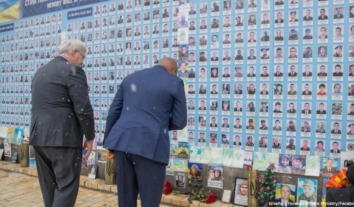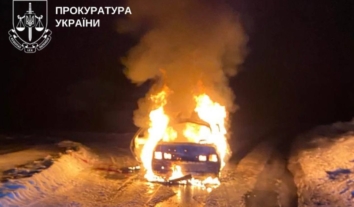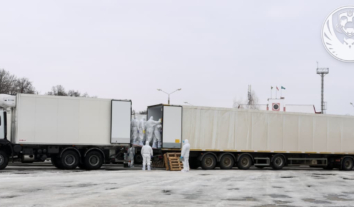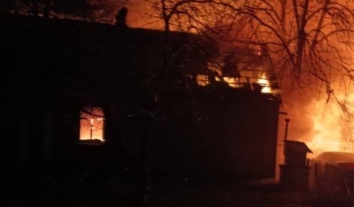Crimean political prisoner Dmytro Shtyblikov is kept isolated
The health of Ukrainian political prisoner Dmytro Shtyblikov, who was convicted of “high treason” by Russia for the second time, is deteriorating. Russian occupying forces keep him in a complete information vacuum.
The Association of Relatives of Kremlin’s Political Prisoners, a Ukrainian non-profit organization that supports family members of political prisoners held by Russia, reports on the psychological state and well-being of the Ukrainian citizen, citing his daughter Tatiana, who receives information from him through infrequent letters. Dmytro Shtyblikov was a defendant in the so-called “Ukrainian Saboteurs” case from 2016, together with two other men. He was accused of alleged preparation of sabotage in the temporarily occupied Crimea and storage of weapons based on dubious evidence.
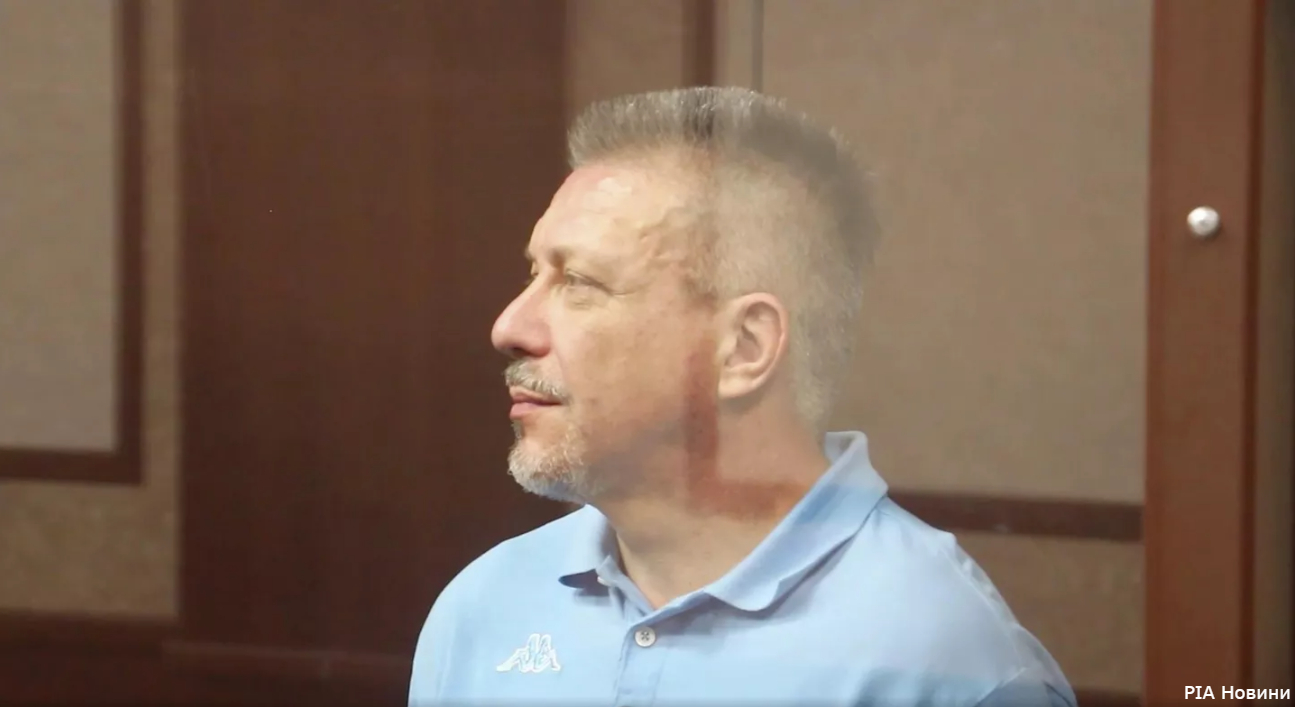 A photo of Dmytro Shtyblikov
A photo of Dmytro ShtyblikovHuman rights defenders recall that on November 8, 2021, Dmytro Shtyblikov was to be released after serving a five-year sentence. On the same day, Shtyblikov was transferred to Rostov-on-Don and accused of “high treason.”
On April 29, 2022, the Ukrainian was sentenced to 19 years and six months in a maximum security colony. The Russian media covered Dmytro as a high-ranking spy of the Defense Intelligence of the Ministry of Defense of Ukraine.
After the second sentence, which the Association of Relatives of Political Prisoners of the Kremlin called criminal, Shtyblikov was transferred back to penal colony No. 6 in Omsk, Russia, where he had been held before, for a long time.
The 52-year-old Ukrainian citizen’s health is reported to be deteriorating. Shyblikov has hypertension, crumbling teeth, and gum pain.
“My father’s eyesight has severely decreased, and his glasses keep breaking for some reason. He doesn’t get enough vitamins because the food in the colony is terrible, and the prison store doesn’t have adequate food,” said Tatiana.
Dmytro is constantly alone in the cell without the possibility of communication and calls to relatives. His walk lasts one hour a day. The Russians allow him to read a limited number of books per month. His daughter says that despite everything, her father remains optimistic and expresses hope for an exchange in his letters.
“Our family hopes that the state has not forgotten about political prisoners. For years, we have been hearing that the Russian Federation has no political will for the exchange. Russian authorities do not want to exchange Ukrainian civilians for their prisoners of war,” she said.
Dmytro Shtyblikov, Volodymyr Dudka, and Oleksiy Bessarabov were detained in Sevastopol on November 9, 2016. The men were accused of allegedly preparing sabotage by an organized group and possessing weapons.
The Security Service of Ukraine (SSU) stated that the Ukrainian citizens detained in Crimea are neither their employees nor contacts.
On November 16, 2017, the Russian-controlled Sevastopol City Court sentenced Dmytro Shtyblikov to five years in a strict regime colony. He entered into a pre-trial agreement with the investigation, pleading guilty. None of the independent lawyers were allowed to see him. Human rights activists consider this evidence of pressure on him by the investigation. In November 2021, Shtyblikov received new accusations of “state treason” from Russian occupying forces. He serves 19.5 year-sentence for alleged “intelligence gathering.”
On April 4, 2019, Volodymyr Dudka and Oleksiy Bessarabov were sentenced to 14 years. Dudka and Bessarabov completely denied their guilt. The Russian Supreme Court upheld the verdict.
According to the Mission of the President of Ukraine in the Autonomous Republic of Crimea, at least 181 individuals are held in custody or imprisoned on the territory of the temporarily occupied Crimea or Russia.
Based on assessments of a human rights organization, Crimea SOS, 35% of political prisoners from Crimea charged with politically motivated grounds became imprisoned after Russia’s full-scale invasion. Most were accused of alleged involvement in the Islamic political organization Hizb ut-Tahrir or the volunteer Crimean Tatar battalion named after Noman Çelebicihan.

